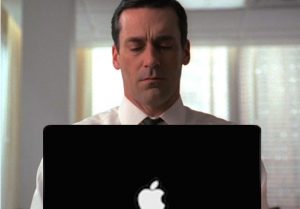
geralt / Pixabay
So, what is career coaching? Many people nowadays use the term career coaching, but they’re not sure they understand its meaning or whether they’re using it in the right context. Any kind of coaching consists of the practice of supporting an individual or a group that has the objective of reaching a predetermined goal or goals. Coaching is a very broad term encompassing a variety of types such as business, career, conflict, executive, personal life, religion, and sports coaching.
Career coaching revolves around job-related issues. Many people use the expressions career coaching, career counseling, and career consulting interchangeably but without really understanding the differences between those terms. In fact, among the three terms there is a fair amount of overlap.
A career coach asks lots of questions to diagnose issues that need attention, focuses primarily on the client’s agenda, and works with the client on the skills needed to achieve the objectives. The process is brief and commonly accomplished via short sessions and sometimes even via phone or video such as Skype, Zoom or alike.
A career counselor provides answers and information. It is logic that drives this process, which uses standardized assessment tools. Counselors typically meet with clients face-to-face at regular, predetermined time intervals.
A career consultant resolves problems by meeting frequently with clients at the consultant’s workplace, and the engagement is project based.
Even within career coaching there are subspecialties. Some coaches specialize in helping clients learn how to apply job search tools; others cover aspects of clients’ marketing of themselves; and still others teach social media presence and the use of LinkedIn, Twitter, and so on. I myself am a career coach specializing in preparing clients for interviews. About 70% of my work consists of performing mock interviews with clients, but a goodly portion also helps clients with myriad other career-coaching issues.
For some job seekers, the cost of career coaching can be a significant barrier. Career coaching is of course a service—one that is purchased the way similar professional services are. For instance, most people see a doctor when they’re sick; or they hire a lawyer when they need legal counseling; or they have their tax filing prepared by an accounting professional if they don’t know how to do it. Many people use a career coach to explore future career options, find a new job, improve leadership skills, change jobs, or create a healthier work-life balance and enhance their experience in their position. Several factors affect the cost of such services.
Career coaching is a profession similar to the professions of plumbers, electricians, accountants, and so on. All of those professionals invest in their careers in order to support themselves, and so, they rightfully expect to be compensated financially by clients or customers.
In my opinion, the cost of career coaching should be made explicit at the outset; and the most expedient way to announce it is via the coach’s Web site. The cost should be made transparent because clients have the right to know up front what they’ll end up paying for such a service. I’d be very suspicious if the cost is not spelled out. What is there to hide? What other surprises can a client expect? Frankly, job seekers should not engage career coaches without checking out whether such coaches have been recommended by others. And I’d question the quality of a coach’s services if no testimonials or LinkedIn recommendations are available.
In researching career-coaching costs, I’ve found it interesting that sessions vary in length from 45 minutes to 50 minutes to 60 minutes and that charges vary, too—from, say, $ 50 to $ 695 per session. My advice is that a prospective client look not at cost per session but at total cost and then compare that with how the client would profit from the service.
Above all, what would the likely outcome be if such a service is not used? By working with a career coach, clients speed up the job search process, work with a pro, get unbiased feedback, stay on track, and, by the end, will have learned how to negotiate a better compensation package that would cover the cost of the career coaching—often severalfold!
Business & Finance Articles on Business 2 Community
Author: Personal Branding Blog
The Personal Branding Blog offers branding and career advice from Dan Schawbel and his team of experts.… View full profile ›
(47)
Report Post









